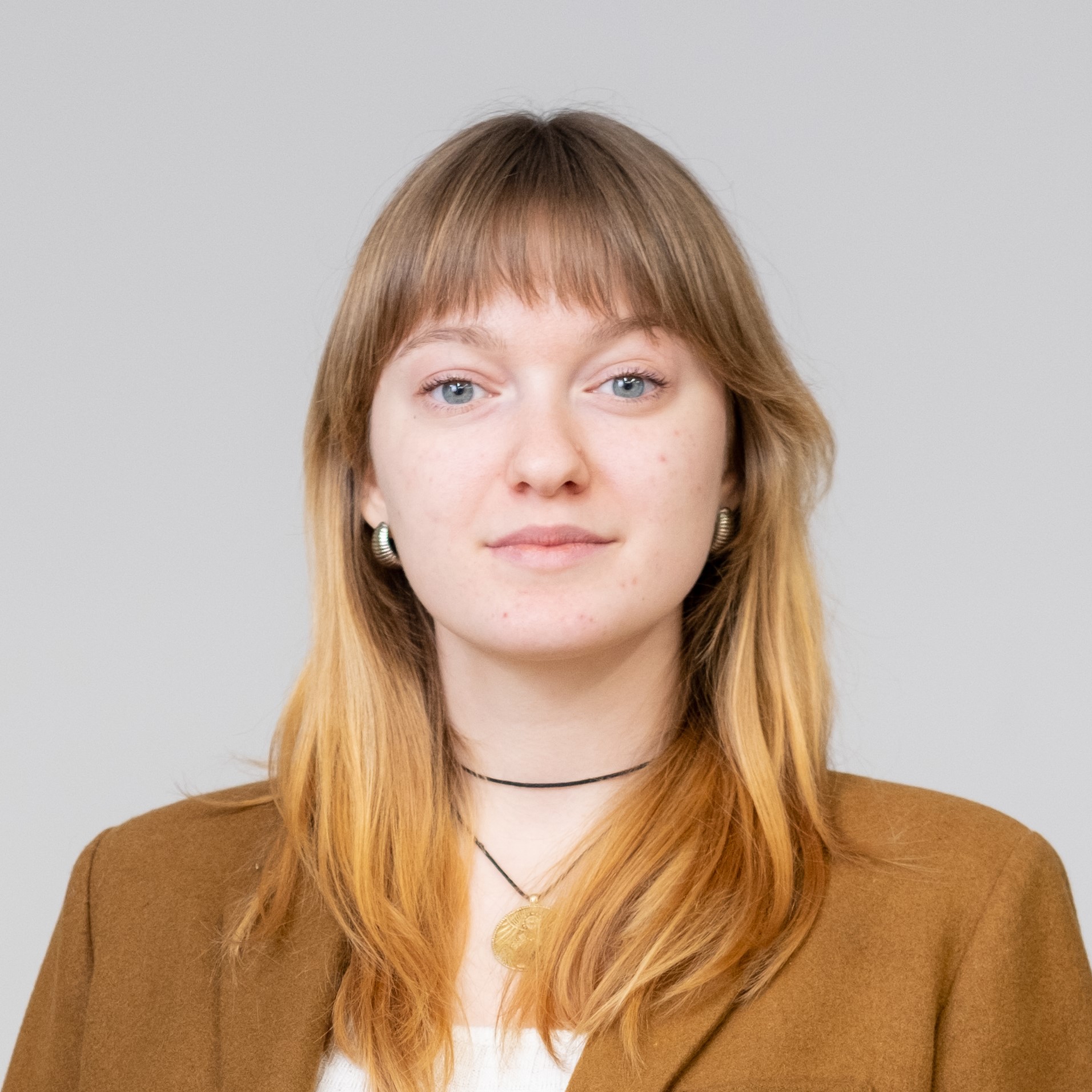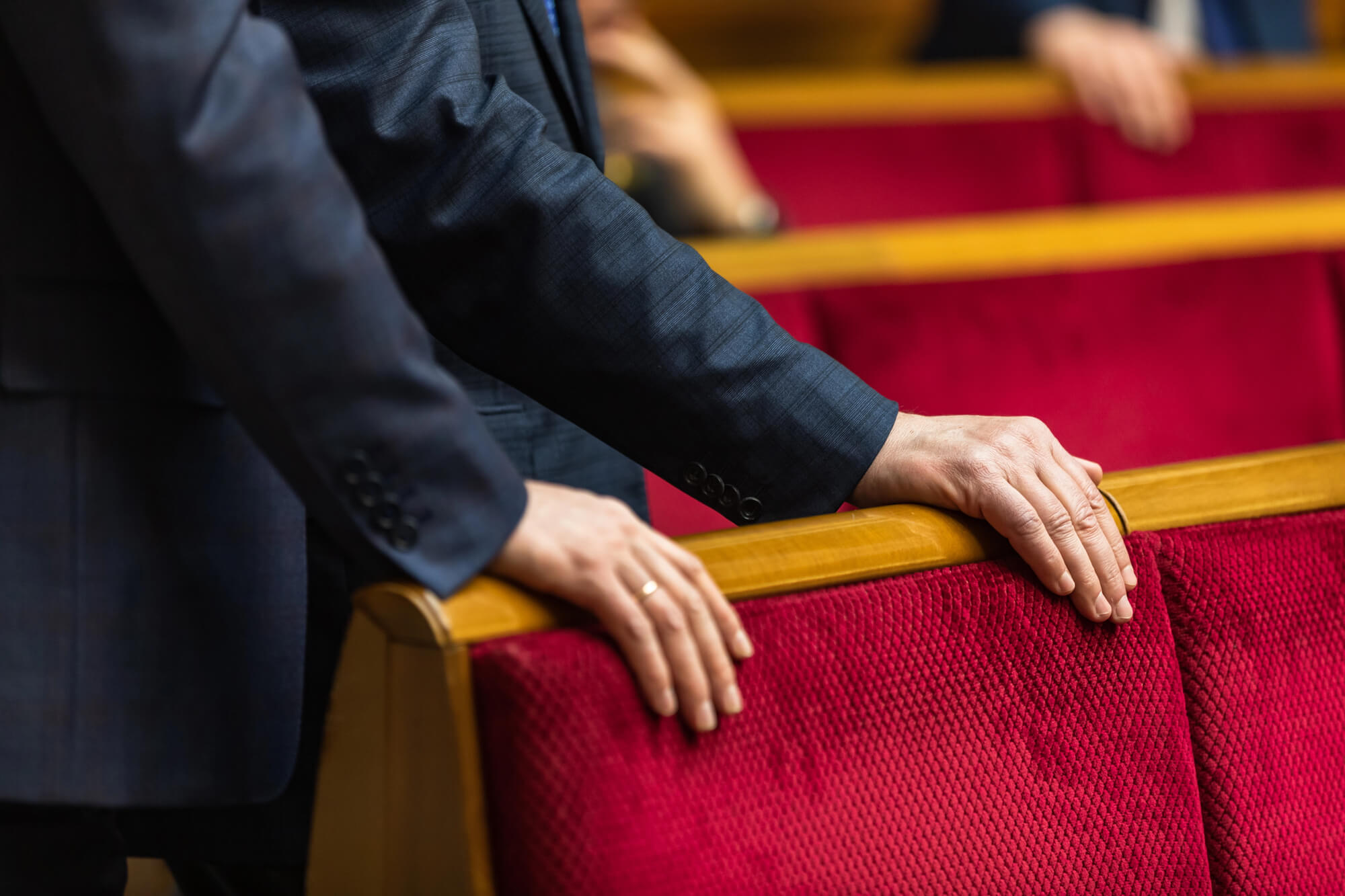The mono-majority in the Verkhovna Rada, which initially operated like a well-oiled machine at the start of the ninth convocation, has gradually lost its momentum. On some days, nearly a quarter of the deputies were absent from sessions. We examined the level of discipline among MPs from various factions, identifying which ones lead the absenteeism rankings, which laws were passed solely with the votes of the mono-majority, and how the war has affected MPs’ attendance at parliamentary sessions. Additionally, we explored whether a gender gap exists in session attendance.
Formally, a people’s deputy has three options during a vote: “yes,” “no,” or “abstain.” However, quite often, MPs do not express their position. They either choose not to vote or remove their voting card from the slot (in which case, the “Rada” electronic system records them as absent). Since a bill requires 226 “yes” votes to pass, not voting or being absent from Parliament hinders the approval of legislation.
During wartime, all branches of government (and society as a whole) need to operate with maximum efficiency. We previously discussed that the amount of “bill spam” should be reduced to improve the quality of legislative work. However, if MPs skip sessions without considering any bills, the discussion about Parliament’s effectiveness becomes meaningless. Therefore, we decided to find out which MPs take their responsibilities seriously and who is persistently absent from Verkhovna Rada sessions.
Methodology
For our analysis of deputies’ attendance in the Verkhovna Rada, we used data from the official parliamentary website on the results of roll-call votes during plenary sessions. Based on this data, we compiled overall statistics on MP attendance at sessions (Figure 1).
MP attendance is measured as the percentage of all votes in which they participated out of the total number of votes since the beginning of their term. We consider MPs present if they inserted their voting card, even if they did not press a button during a particular vote. However, the behavior of MPs who are physically present in the session hall but choose not to vote requires a separate investigation, as it may indicate either an attempt to conceal their position or sabotage the work of Parliament.
We also conducted a separate analysis of “final” votes, meaning votes on resolutions and laws “as a whole” (regardless of the outcome of the votes). Therefore, we excluded signaling votes, votes on amendments, and votes from the initial stages of bill consideration from the original dataset. These results are presented in Figures 2 and 3.
The average attendance rate in the Verkhovna Rada dropped from 87% during the first year of the 9th convocation (September 2019 to September 2020) to 76% in the last year (September 2023 to September 2024).
During the second session (the first lasted only one day, during which the MPs appointed the government), average attendance was over 90%. After that, the 9th convocation never returned to the discipline seen during the “turbo mode” period. Over time, attendance gradually declined, up until Russia’s full-scale invasion in February 2022.
Then, MPs consolidated and returned to their workplaces, with attendance rising from 80% to 84%. Therefore, there was no mass exodus of deputies during the war. In fact, according to Speaker of the Verkhovna Rada Ruslan Stefanchuk, about 10 MPs (mainly from the now-banned OPFL) left Ukraine before the full-scale invasion and did not return.
However, MPs’ renewed active engagement did not last as long as expected. Between September 2023 and January 2024 (during the 10th session), we recorded a record-low attendance rate of 73% in parliamentary votes.
Throughout the entire term of the current convocation, several MPs consistently skipped parliamentary sessions: Vadym Stolar (14% attendance), Stepan Ivakhiv (39%), Ihor Palytsia (46%), and Oleksandr Dubinsky (30%). Other deputies significantly decreased their participation in the most recent sessions: Geo Leros dropped from 81% in the second session to 26% in the tenth, Olha Savchenko from 80% to 17%, Zhan Beleniuk from 63% to 13%, and Kira Rudyk from 77% to 16%.
Figure 1. Average MP attendance in all votes in the Verkhovna Rada and final votes (“as a whole”), by session, %
Note: The first session lasted only one day, so the percentage is not representative. Additionally, eight laws were excluded from the review as voting data for them is missing on the Verkhovna Rada website (at the onset of the full-scale invasion, roll-call results were not recorded for security reasons).
Figure 2 below shows a detailed breakdown of MPs’ attendance for each final vote on a bill or resolution (votes with “as a whole” status).
Disclaimer: It has been repeatedly observed that MPs remove their voting cards during certain votes, simulating their absence. In this study, we count a removed card as the MP being absent from the session, which increases their absentee score.
Figure 2. Number of MPs (cards) present at each final vote on bills and resolutions “as a whole”
Most of the sharp downward spikes represent votes to annul certain decisions of the Verkhovna Rada. MPs often do not stay for such votes: in 11 of these cases, fewer than 200 deputies were present, even though the session hall was filled as usual for other votes on the same day. For example, on July 14, 2021, MPs attempted to annul a decision to amend Article 188-32 of Ukraine’s Code on Administrative Offenses (regarding non-compliance with decisions of the High Council of Justice), and only 107 deputies were present. The vote to annul the decision on electing members of the High Council of Justice gathered 108 MPs. A few other instances of abnormally low attendance include the vote on an appeal to the U.S. Congress to grant Ukraine major non-NATO ally status in 2021 (214 MPs), the report by Mykola Tyshchenko’s Temporary Special Commission (261 MPs), the bill on Ukraine’s withdrawal from the CIS protocol on anti-terrorism cooperation (268 MPs), the bill on credit unions (277 MPs), and the vote to condemn the events of March 20, 2021, near the President’s Office (278 MPs).
Attendance rankings
The top ten most responsible MPs, who rarely miss votes, consist solely of the “Servants” and the now-independent Maryana Bezuhla. Most of them also hold high positions in our MP efficiency rankings, meaning they support reforms (see Table 1). Achieving a high spot in the efficiency rankings is currently straightforward: simply vote “yes” during all decisions, as the Index experts have recently hardly recorded very few anti-reform measures (only 17 for the entire 9th convocation). An exception is Mykhailo Tsymbaliuk from Batkivshchyna (11th place), who, despite being classified as an anti-reform MP according to his efficiency score, attended 98.8% of sessions (mostly voting against reforms or abstaining).
Table 1. Top 10 MPs with the highest overall attendance at sessions
Note: The full attendance rankings can be viewed here. The ranking of MPs based on their votes for reforms is available here.
Are there MPs who attend key votes but avoid less important decisions? Overall, session attendance generally correlates with participation in votes for reforms and anti-reform measures. However, there are exceptions: Maksym Khlapuk from “Holos” and Mykhailo Sokolov from “Batkivshchyna” have 100% attendance at reform votes despite having a below-average overall session attendance of 85% (ranked 242nd) and 82% (ranked 287th), respectively. Khlapuk moderately supports reforms, while Sokolov, who joined the Verkhovna Rada during the ninth session, has established himself as a staunch anti-reform MP, having supported none of the reforms (0% reform support).
Oleksandr Vasiuk (Servant of the People) also has average attendance (85%) but is almost always present for reform votes and ranks second in effectiveness (98%). It is worth noting Roman Lozynskyi: despite serving in the military since the start of the full-scale war, he has been present for 95% of reform votes, though his overall session attendance is lower.
The majority of chronic absentees are from the “For the Future” faction, though Vadym Stolar from “Restoration of Ukraine” tops the absentee list (see Table 2). In 2022, there were attempts to revoke his mandate, yet he continues participating in Verkhovna Rada sessions, having shifted his position to align with the ruling party.
Table 2. Top 8 MPs with the lowest attendance
Note: The full attendance rankings can be viewed here. The ranking of MPs based on their votes for reforms is available here.
We did not include MPs who are or have been in military service or female deputies who were on maternity leave in the rankings.
Some MPs are frequently on official trips and are part of parliamentary delegations traveling abroad to meet with other politicians. Since information about these travels is often classified, we cannot account for them in the rankings. For example, among the most frequent absentees is Petro Poroshenko, who participates in the work of the NATO Parliamentary Assembly.
Mono-majority: Is there any strength left?
During the term of the 9th convocation, the status “Decision Adopted” on final votes (with the note “as a whole”) was granted to 2,158 bills and resolutions. The “Servant of the People” faction could independently pass any of these decisions without the involvement of other factions and groups, provided there was sufficient party discipline, even though the number of “Servants” decreased from 254 in September 2019 to 233 in July 2024. However, who actually voted for these decisions?
Figure 3. Number of “yes” votes from the “Servants” for all adopted bills and resolutions
The “Servants” were able to secure enough votes only 42 times (2%), with 29 of those instances occurring in the first six months of their term. In 2020, the first crisis of the mono-majority began due to the pandemic and the resignation of Oleksii Honcharuk’s government. On the day of the government change, March 4, 2020, the “Servants” provided over 226 votes for six decisions, with all related to the dismissals and appointments of the Prime Minister and other ministers. In April of the same year, a law altering the procedure for handling criminal cases during the quarantine received 226 votes from the “Servants,” and a year later, the law on deregulating land relations (transferring land outside populated areas to community ownership) also garnered 226 votes.
Four laws received the necessary number of votes from the Servant of the People MPs on February 23, 2022: regarding the introduction of a state of emergency, the allocation of the state budget, the organization of the Verkhovna Rada’s work during martial law, and amendments to the Budget Code of Ukraine.
After this date, the mono-majority independently passed decisions only twice (in May 2022): one was a bill on cooperation with the International Criminal Court, and the other was a permit for using territorial defense forces in combat zones.
Since 2019, the “Servant of the People” has been actively supported by votes from the “Dovira” and “For the Future” groups. Following the full-scale invasion and the banning of the OPFL, former representatives of the pro-Russian party joined the votes of the mono-majority, demonstrating sufficient discipline and synchronization with the “Servants” over the past two years. We previously discussed this in our studies on MPs’ effectiveness.
On average, during the term of the 9th convocation, the mono-majority provided about 200 votes from its members when voting on adopted decisions. During the “turbo mode,” this number remained around 215 but began to decline with the onset of the full-scale invasion. It reached its lowest point between February and August 2023 during the 9th session, with an average of 189 votes.
MP attendance and party discipline
The vast majority (335 MPs) attended at least 75% of the total number of votes. Nearly half (174 individuals) had high attendance rates of 90% and above.
Figure 4. Distribution of MPs by attendance percentage in votes
Regarding the number of MPs with attendance rates exceeding 95% (systematically present), the “Dovira” faction ranks second after the mono-majority: four out of 19 MPs in this faction have such a high attendance rate. All factions, except for “PFLP ” and “Holos,” have individual representatives with the same or higher attendance rates.
Those who missed at least a quarter (25% or more) of the working sessions are classified as absentees. This category includes 55 MPs from all factions. “Batkivshchyna” has the highest percentage of such absentees (46), followed closely by “Restoration of Ukraine.” Representatives of “PFLP,” although they were the largest anti-reformers in the Verkhovna Rada until the 7th session, do not skip sessions as frequently, comparable to “Holos” (here we do not consider the eight female MPs with low attendance who were or are still on maternity leave: Olha Saladukha, Yuliia Svitlychna, Oleksandra Ustinova, Yelizaveta Yasko, Darya Volodina, Aliona Shkrum, Anastasiia Liashenko, and Lesia Vasylenko. We also excluded Serhii Rudyk, Liudmyla Buimister, and Yana Zinkevych, who joined the Armed Forces of Ukraine).
The average attendance of each faction correlates almost perfectly with the number of absentees (see Figure 5), which may indicate the level of discipline within the faction.
Figure 5. Percentage of absentees and average attendance rate by faction
“For the Future,” “Batkivshchyna,” and “Restoration of Ukraine” have MPs with both high and low attendance at sessions, which may indicate low discipline within these factions. In contrast, deputies from “Dovira” predominantly have attendance rates around the average for their faction (83%), with the lowest attendance among them being Serhii Shakhov at 70%.
Figure 6. Attendance of all current MPs by faction
Note: The heads of the factions are highlighted in black.
The faction heads generally attend the Verkhovna Rada in a manner consistent with their faction’s overall attendance. Exceptions include Oleksandra Ustinova, who, as previously mentioned, was on maternity leave and is also a member of the permanent delegation to the Parliamentary Assembly of the Council of Europe, Davyd Arakhamia, a member of the NATO Parliamentary Assembly delegation, and Yuliia Tymoshenko, who simply does not attend the sessions. In contrast, Taras Batenko from “For the Future” ranks first in attendance within his faction.
Gender revisited
During the ninth convocation, 14 female MPs (16% of all women in the Verkhovna Rada and 3% of all MPs) gave birth, temporarily ceasing their duties for extended periods, sometimes more than six months. Although in Ukraine, parental leave for up to three years can be taken by either the mother or the father, we did not record any news about male MPs taking this leave.
If we disregard the factor of maternity leave, there is a difference between the average attendance rates of men and women, although it is minimal: 85% for male MPs and 81% for female MPs. When considering this condition, the difference virtually disappears: 85% for men and 84% for women. Among the absentees (those with an attendance rate below 75%), 14% are men, and 13% are women, indicating no significant difference in attendance between male and female MPs.
Conclusion
Attendance at sessions is a key indicator of the Verkhovna Rada’s effectiveness. Of the 450 seats provided for by the Constitution, only 401 are currently filled, making every vote crucial. Systematic absenteeism by certain MPs hampers the passage of important bills and wastes taxpayers’ money. In times of war, when the country requires swift and balanced decisions, the presence of elected representatives at their workplace is not just an obligation, but a matter of national security for Ukraine. Improving discipline must become a priority for both Parliament’s leadership and MPs, ensuring they can respond promptly to the challenges facing the country.
Photo: depositphotos.com/ua
Attention
The author doesn`t work for, consult to, own shares in or receive funding from any company or organization that would benefit from this article, and have no relevant affiliations



